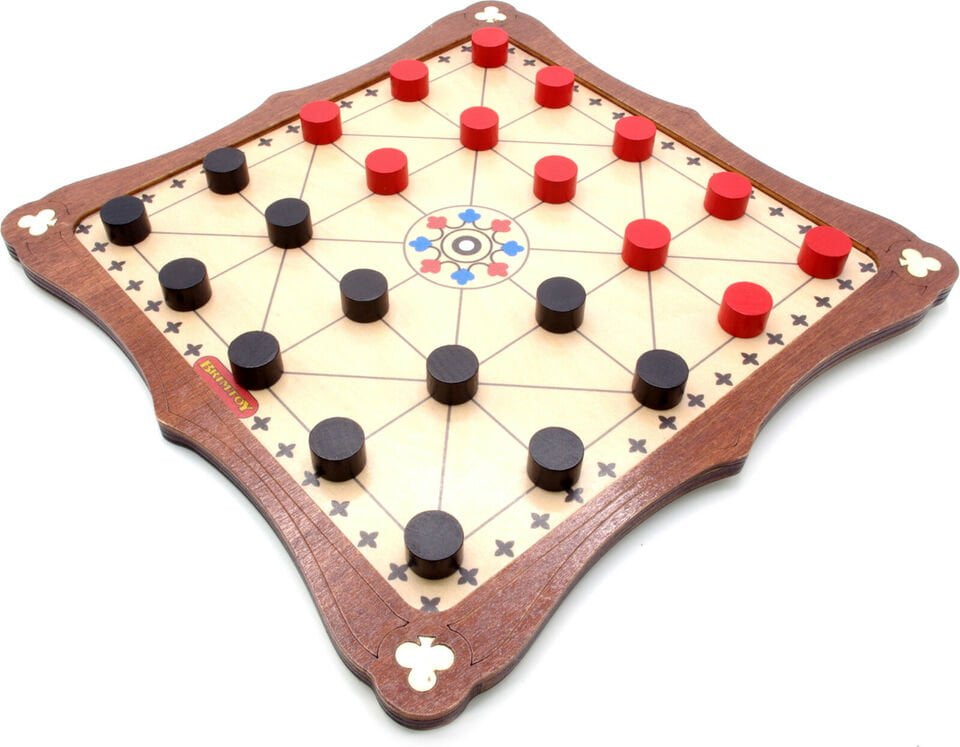Alquerque (1000)
Alquerque
Alquerque is a strategy board game that is thought to have originated in the Middle East and is considered to be the parent of draughts (US: checkers) and Fanorona. The game first appears in literature late in the 10th century when Abu al-Faraj al-Isfahani mentioned Qirkat in his 24-volume work Kitab al-Aghani (“Book of Songs”). This work, however, made no mention of the rules of the game. The game was documented in the book “Libro de los Juegos”, or the “Book of Games”, commissioned by Alfonso X of Castile in 1283. Spanish settlers in New Mexico introduced a four-player variant of Alquerque to the Zuni.
Why is Alquerque Popular?
Alquerque is significant because it is considered to be the parent of draughts (US: checkers) and Fanorona. It is also thousands of years old and has remained a popular pastime for most of recorded history.
Game Components of Alquerque
How To Setup Alquerque
To set up Alquerque, each player places their 12 pieces in the two rows closest to them and in the two rightmost spaces in the center row. The game starts with an empty center space.
Gameplay Mechanics and Game Objective
Player Experience
Alquerque offers a rich strategic experience, requiring players to think ahead and plan their moves carefully. The game demands a balance between defensive and offensive tactics, making each match engaging and challenging. The absence of chance elements ensures that the outcome is purely based on the players’ skills and strategies.
Pros
Cons
Personal Thoughts on Alquerque
Alquerque is ideal for those who enjoy strategic board games and are interested in the historical roots of modern games. It is a great choice for players looking to challenge themselves tactically and appreciate the nuances of a game that has been played for centuries. However, it may not be the best fit for casual players seeking a quick, light-hearted game.
We are supported by our audience. When you purchase through links on our site, we may earn an affiliate commission, at no extra cost for you. Learn more.

